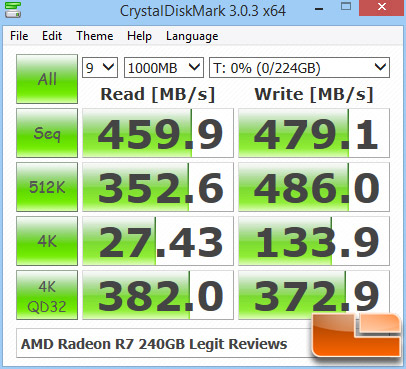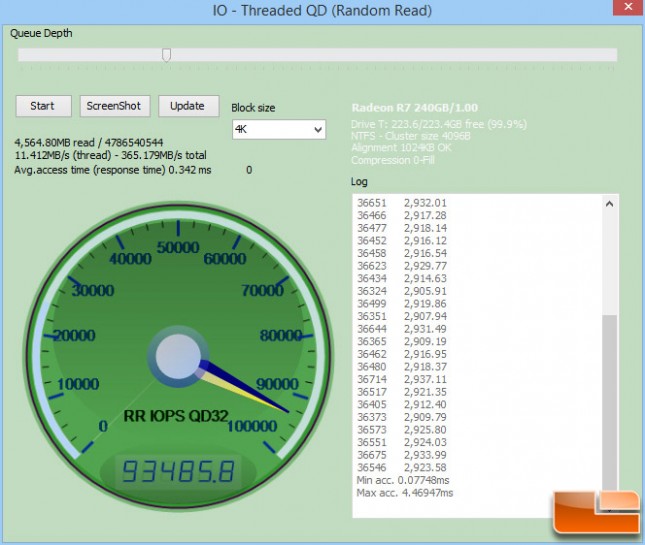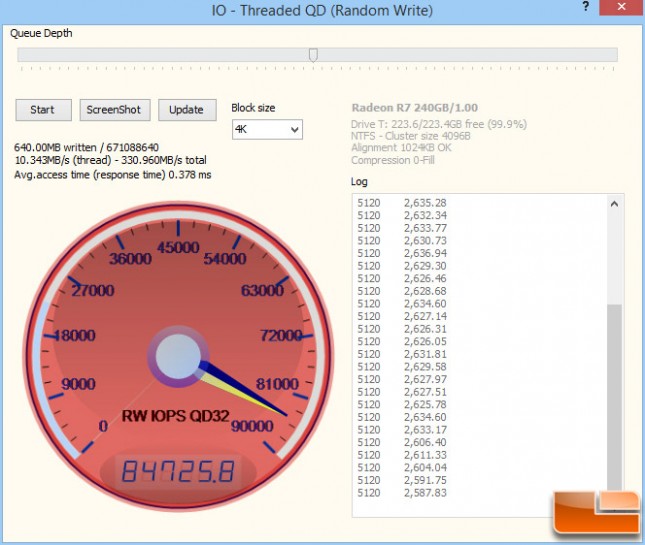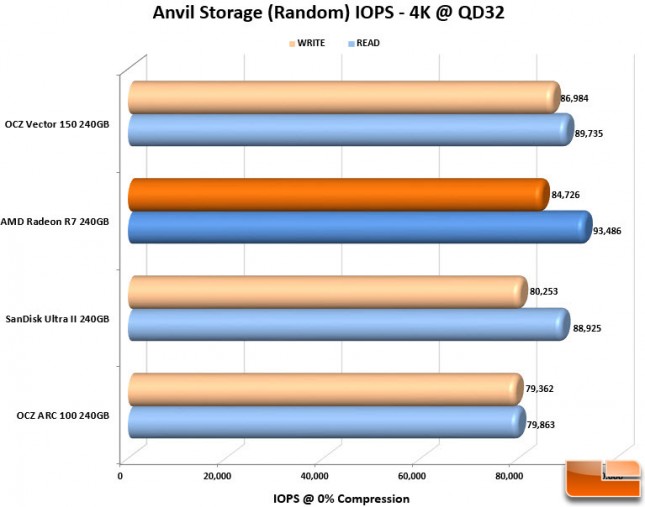AMD Radeon R7 Series 240GB SSD Review
CrystalDiskMark & Anvil IOPS
CrystalDiskMark is a small benchmark utility for drives and enables rapid measurement of sequential and random read/write speeds. Note that CDM only supports Native Command Queuing (NCQ) with a queue depth of 32 (as noted) for the last listed benchmark score. This can skew some results in favor of controllers that also do not support NCQ.
CrystalDiskMark 3.0.3 x64 – Intel Z97 Platform
Benchmark Results: We find nearly identical results to that of the AS-SSD benchmark where the R7 drive trails the Vector 150 but easily outpaces the OCZ ARC 100 drive.
There’s a relatively new benchmark called Anvil Storage Utilities that is in beta but close to production. It’s a very powerful tool that measures performance through a variety of tests which can be customized. Since some of the tests more or less duplicate what we get from other benchmarks we use already, we decided to use the IOPS (Input/Output Operations Per Second) testing on 4kb file sizes at a queue depth of 32. IOPS performance is something SSD makers tout quite a bit but we generally don’t do a lot of IOPS testing because frankly a lot of users can’t relate to IOPS metrics as well and it tends to be more meaningful to the enterprise/server crowd. Still, it is another performance indicator with relevance and while some drives post good MB/s numbers, their IOPS scores aren’t always commensurate which this test will prove out.
Benchmark Results: IOPS performance is pretty close to that of the Vector 150 drive and we observed results slightly less than the rated specifications of 95K reads and 90K writes.Really, all of the drives we’ve tested on this bench to date have been pretty close in performance and speaks to the quality of drives being put out these days.





